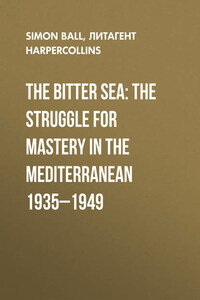In July 2008 the Libyan tyrant Muammar Gaddafi announced that he would boycott the inaugural meeting of the Union for the Mediterranean, or ‘Club Med’ as it was invariably known. The President of France, Nicolas Sarkozy, had summoned forty-two Mediterranean leaders to Paris to create the Union. Newly elected, he wanted an alternative to the faltering ‘Barcelona process’ that, since 1995, had been a vehicle for transferring aid from the European Union to the Arab world. Something grander and more heroic was required to capture the imagination of Europe and the Middle East, Sarkozy believed. Gaddafi was appalled. The initial invitation to Club Med, issued in December 2007, was grandly entitled, in the worst possible taste, the ‘Appeal from Rome’. Libya had been created from the ashes of Mussolini’s Roman Empire. Sarkozy had flanked himself with the leaders of Spain and Italy, an echo of the unrealized Mediterranean Axis of 1940. ‘We shall have another Roman Empire and imperialist design,’ Gaddafi snarled from his palace in Tripoli. ‘There are imperialist maps and designs we have already rolled up. We should not have them again.’ >1

This is a book about an idea and its time. The idea was that there was a place called the Mediterranean and that the Mediterranean was worth fighting for. The time was the mid-1930s to the late 1940s.
The existence of the Mediterranean is embedded in the modern imagination. >2 Long before the aeroplane or the satellite created aerial pictures of the Mediterranean, the Victorian art critic John Ruskin urged his reader to rise with him higher than the birds. Together they would see ‘the Mediterranean lying beneath us like an irregular lake, and all its ancient promontories sleeping in the sun’. Beneath them were ‘Syria and Greece, Italy and Spain, laid like pieces of a golden pavement into the sea blue’. >3 This vision of the ‘golden pavement’ and ‘sea blue’ was endorsed by the most famous twentieth-century history of the Mediterranean. In The Mediterranean and the Mediterranean World in the Age of Philip II, published in 1949, the French historian Fernand Braudel insisted that the Mediterranean was a unit of ‘creative space’: its amazing freedom of sea-routes and ‘complementary populations’ shaped human actions. Braudel’s putative subject was the sixteenth century, but few were in any doubt that he was addressing his own times. >4 As Braudel himself remarked, his view of the historical Mediterranean was formed by his years as a teacher in Algeria. He imagined a Mediterranean seen from the ‘other bank’, ‘upside down’. >5
Yet there were sceptics about ‘the Mediterranean’. What, writers from Mediterranean countries asked, did all this talk about ‘Mediterranean culture’ amount to, beyond chatter worked up into an intellectual system? The Mediterranean was not a good ‘unit of analysis’. The unity of its populations was illusory. National histories mattered more than an ill-defined Mediterranean identity. >6 The Mediterranean did not make much sense. A central tenet of ‘Mediterraneanness’ was that religious difference, though not religions, was essentially unimportant. As Braudel put it, the Islamic Mediterranean lived and breathed with the same rhythms as the Christian. Yet at the very moment he wrote, the whole concept of the ‘the Middle East’, a different, identifiable, Muslim, world incorporating eastern Mediterranean lands, had colonized the imagination of politicians and journalists. Efforts to halt or reverse the spread of the concept proved fruitless. Winston Churchill told cavillers: ‘a million or so Englishmen had fought, and many died, in what they knew as the Middle East, and the Middle East it was to remain!’ By the late 1940s the term Middle East was in universal circulation, and has retained its grip ever since. >7
One group able to write about the Mediterranean and the Middle East, without worrying too much about questions of identity, has been military historians. >8 For them the Mediterranean was not a culture area but a theatre. Rather than doubt the self-evident existence of the Mediterranean ‘theatre’, they instead gnawed away at the question of whether the Mediterranean was important to the outcome of the Second World War. The argument stretched back to Anglo-American disputes about strategy in the middle years of the war.








